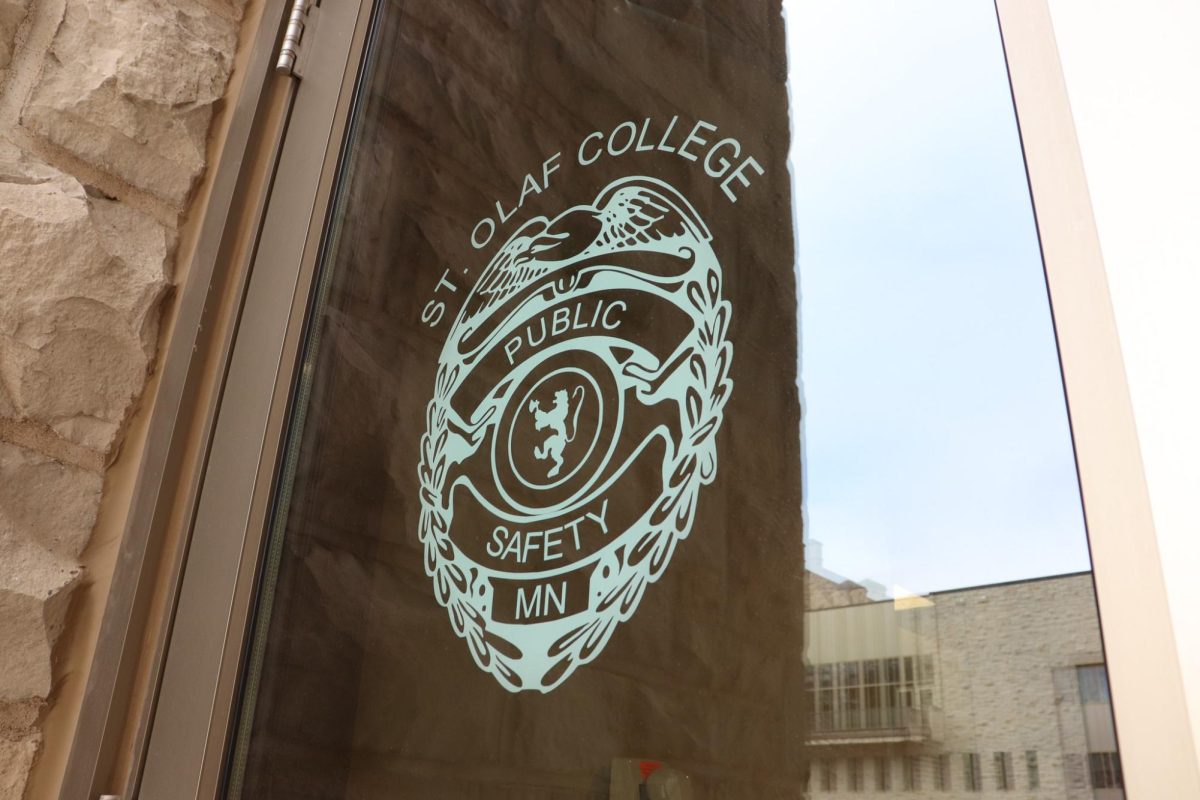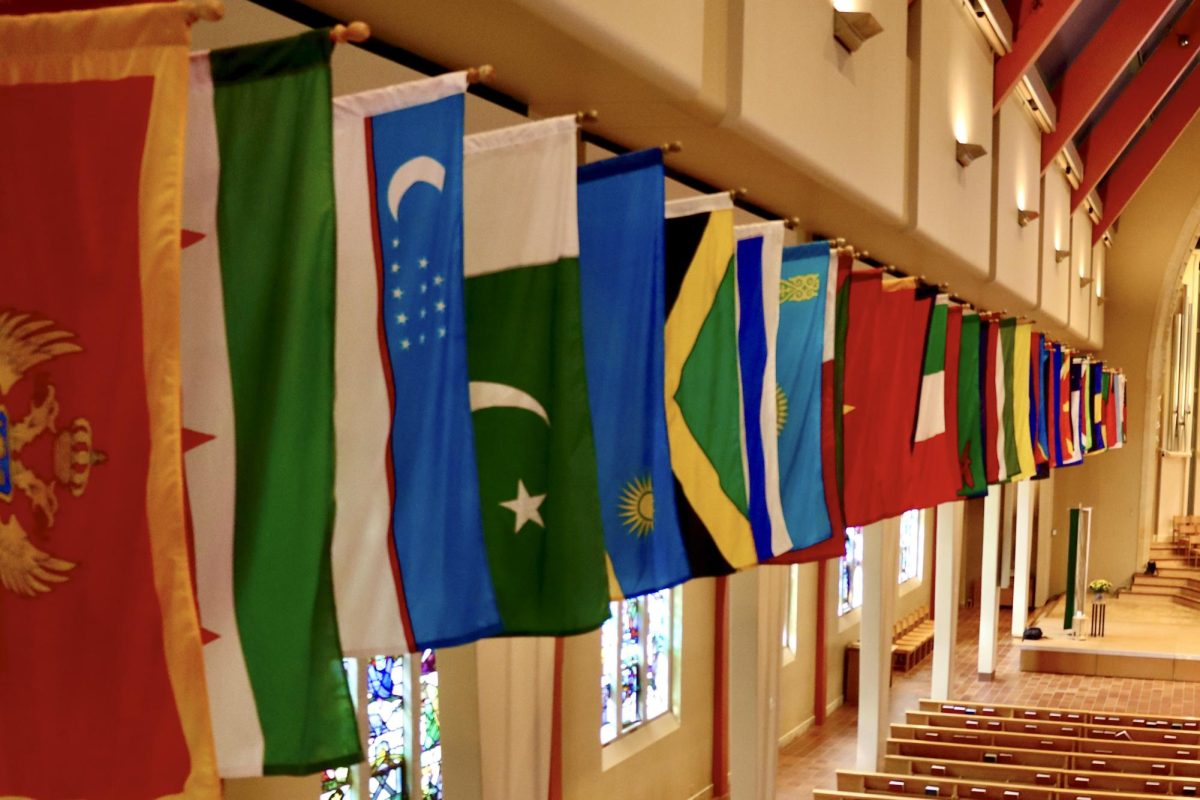Over the past few weeks, students have been tabling outside of Stav Hall, petitioning to make St. Olaf a sanctuary campus. Similar to a sanctuary city, a sanctuary campus would refuse to cooperate with and/or assist Immigration and Customs Enforcement (ICE) agents if they were to come onto campus. At press time, the print petition had close to 700 signatures and an online version of the petition was expected to have a couple hundred signatures.
“We ask that St. Olaf refuse to allow ICE agents from conducting activity on St. Olaf property as allowed by a 2011 U.S. Immigrations and Customs Enforcement memo,” the proposal read. “We ask that St. Olaf protect all individuals in the St. Olaf community, including its students, faculty, and staff … doing so will demonstrate that St. Olaf takes the safety and wellbeing of the St. Olaf community seriously,” the proposal read.
Samantha Wells ’17 is the go-to student contact for the petition. The organizing students’ intent is not to demand that administration make policy changes, but rather to bring to administration a proposal that already has significant student support. Wells plans to share the proposal first with Student Senate and then with college administrators. Wells has been in contact with President David Anderson ’74, who connected her with General Counsel Carl Lehmann ’91 for assistance in understanding the legal details surrounding current college policies. Anderson said that he is supportive of protecting student privacy and would be interested in supporting students in any way that is legal and appropriate. As of Dec. 2, the petition and proposal had not yet been brought to St. Olaf administration.
The definition of “sanctuary” is flexible; there is no legal definition for a sanctuary city or sanctuary campus, but most often it refers to a city or institution that refuses to cooperate with ICE officials. For a city, this could mean limiting how extensively government employees and law enforcement will work with federal immigration officials. For a campus, it often means refusal to disclose private student records and limiting the access that federal immigration officials have on campus.
College campuses across the country have been pushing to become sanctuary spaces. Unlike cities, campuses have special privileges under a ICE memo that allows them to refuse to cooperate with ICE officials in some circumstances. A memo issued by the U.S. Immigration and Customs Enforcement office on Oct. 24, 2011 states that ICE agents are not allowed to perform actions including “(I) arrests; (2) interviews; (3) searches; and (4) for purposes of immigration enforcement only, surveillance” on “sensitive locations.” The memo defines a college campus as a sensitive location.
That being said, immigration agents are still able to do some things, including “obtaining records, documents and similar materials from officials or employees, providing notice to officials or employees, serving subpoenas, engaging in Student and Exchange Visitor Program (SEVP) compliance and certification visits or participating in official functions or community meetings.”
St. Olaf already has student privacy policies in place that protect student information from being handed over to federal agents.
“Under our current policies, we do not disclose information about students – except in very limited circumstances – and that would include a student’s immigrant status,” Lehmann said. “So if a government agency came to campus and said ‘we want to know the names of students who are not legally authorized to be in the United States,’ that’s not information that we would voluntarily provide without a subpoena or a court order, or if there was some emergency.”
One of the biggest bargaining pieces in the sanctuary city debate is President-elect Donald Trump’s threat to cut federal funding to sanctuary cities. Because St. Olaf isn’t a public institution, it doesn’t necessarily have a horse in this race. Whether or not federal aid for St. Olaf students would be included in this threat is unclear.
“Our students certainly receive a lot of federal aid, and our ability to participate in Title IV programs, grants and student aid, is something that all our students should be concerned about,” Lehmann said. “We would want to continue to participate in federal financial aid programs.”
Lehmann is still waiting to see the final proposal but is encouraged to determine how administration might be able to work with students to soothe some of their immediate concerns.
“If students want assurances that their right to privacy are going to be respected, we can certainly provide those assurances,” he said. “If the initiatives are aimed at defying federal law or a court order or something like that, I think that would be something that the college wouldn’t be interested in being a party to because we have to abide by court orders and the law. In the proposals that I’ve seen with other colleges, that’s pretty consistent with the positions that other institutions are taking, too.”
The sanctuary campus petition comes after the Northfield city council decided to further discuss making Northfield a sanctuary city. At the Nov. 16 city council meeting, members agreed to further research sanctuary cities and the council will likely begin discussions on the topic at its Dec. 13 meeting.





